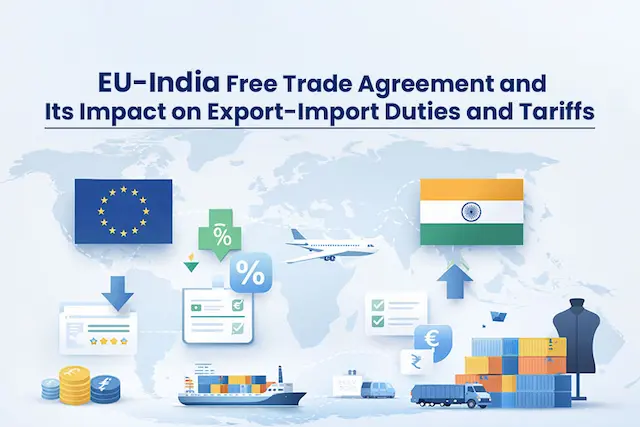In the vast world of global commerce, small businesses face a challenge when venturing into international markets—waiting for payments. Did you know that delayed payments can hinder the growth of these enterprises?
Enter export factoring, a game-changer for small businesses aspiring to conquer international markets. Imagine having the power to transform your cash flow instantly, enabling you to invest in growth and seize new opportunities without the stress of extended payment delays.
Export factoring not only addresses the cash flow puzzle but also acts as a shield against risks like currency fluctuations and non-payment uncertainties. With the support of credit analysis services and administrative assistance, small businesses can confidently extend their reach, offering favorable payment terms to international customers.
This is more than just financial assistance; it’s a strategic tool that empowers small businesses to thrive and make a mark in the global marketplace.
Let’s explore how export factoring becomes the key to unlocking doors to international success for small enterprises.
What is Export Factoring?
Export factoring is a financial arrangement that helps businesses manage cash flow by providing working capital based on their accounts receivable from international sales. It is a form of receivables financing designed for companies that engage in cross-border trade.
How Export Factoring Works?
Here’s how export factoring typically works:
Sale of Goods or Services: A company sells goods or services to international customers on credit terms.
Invoice Submission: The exporting company submits invoices to the export factor detailing the transactions with its international customers.
Verification and Approval: The export factor verifies the invoices and the creditworthiness of the international customers. Once approved, the factor advances a certain percentage (typically 70-90%) of the invoice amount to the exporting company.
Collection of Receivables: The export factor takes over the responsibility of collecting payment from the international customers. This can include managing currency issues and dealing with any legal or regulatory requirements in the customer’s country.
Remaining Payment: Once the customer pays the invoice, the export factor deducts its fees and any remaining amount is remitted to the exporting company.
Global Potential:The Impact of Export Factoring on Small Business Expansion
Export factoring can empower small businesses to conquer international markets by addressing some of the key challenges they face when engaging in cross-border trade. Here are ways in which export factoring can be beneficial for small businesses expanding globally:
Improved Cash Flow: Small businesses often struggle with cash flow issues, especially when dealing with international transactions where payment delays are common. Export factoring provides immediate access to funds, allowing small businesses to meet their working capital needs, invest in growth, and take advantage of new opportunities without waiting for extended payment terms.
Risk Mitigation: International trade comes with inherent risks, such as currency fluctuations, political uncertainties, and the risk of non-payment by foreign buyers. Export factoring helps mitigate these risks by transferring the credit risk of international customers to the factor. This can provide a level of financial security for small businesses, allowing them to expand into new markets with reduced risk exposure.
Credit Management Support: Export factors often offer credit analysis services to assess the creditworthiness of international customers. This can be particularly valuable for small businesses that may not have the resources or expertise to conduct thorough credit checks on their own. By relying on the expertise of the export factor, small businesses can make informed decisions about which international customers to extend credit to.
Administrative Efficiency: Managing international transactions can be administratively complex, involving currency conversions, compliance with international regulations, and coordination of logistics. Export factors often provide administrative support, including currency management, collection services, and assistance with legal and regulatory compliance. This allows small businesses to focus on their core competencies without being bogged down by the intricacies of international trade.
Competitive Advantage: Access to export factoring can give small businesses a competitive edge in international markets. The ability to offer favorable payment terms to customers, backed by the assurance of a reliable factoring partner, can make a business more attractive to international buyers. This, in turn, can help in building strong and lasting relationships with overseas clients.
Scalability: As small businesses expand their international operations, the volume of transactions and associated challenges can increase. Export factoring provides a scalable financing solution that can grow with the business. The more a small business sells internationally, the more it can leverage export factoring to support its growth.
While export factoring offers numerous advantages, it’s important for small businesses to carefully evaluate the terms and costs associated with factoring agreements. Each business’s financial situation and goals should be considered to ensure that export factoring aligns with its overall strategy for conquering international markets.
Tips For Small Owners To Use Export Factoring
Here are some helpful tips for small business owners to use export factoring to the best of their advantage:
Understand Your Cash Flow Needs
Before engaging in export factoring, carefully assess your cash flow requirements. Identify periods of high demand, production costs, and potential delays in customer payments. This understanding will help you leverage export factoring effectively to meet your working capital needs.
Choose the Right Export Factor
Research and select an export factor that aligns with your business needs. Consider factors such as experience in your industry, geographic coverage, fees, and the range of services offered. A reliable and experienced export factor can significantly contribute to the success of your international ventures.
Thoroughly Review Contract Terms
Carefully examine the terms and conditions of the export factoring agreement. Pay attention to fees, advance rates, and any additional charges. Ensure that the contract provides the flexibility you need for your specific business operations and growth plans.
Utilize Credit Management Services
Take advantage of the credit management support offered by export factors. Use their expertise to assess the creditworthiness of international customers, helping you make informed decisions about extending credit. This can minimize the risk of non-payment and enhance your overall financial stability.
Streamline Administrative Processes
Leverage the administrative support provided by export factors to streamline your international transactions. From currency management to compliance with regulations, let the export factor handle the intricacies, allowing you to focus on your core business activities.
Negotiate Favorable Terms with Suppliers
With improved cash flow from export factoring, negotiate favorable terms with your suppliers. Negotiating early payment discounts or better pricing can further enhance your profitability and competitiveness in the international market.
Use Export Factoring as a Competitive Advantage
Highlight the fact that you work with an export factor as a competitive advantage. Emphasize your ability to offer flexible payment terms to international customers, backed by the financial security provided by your factoring partner.
Plan for Scalability
Consider export factoring as a scalable financing solution. As your international operations grow, the volume of transactions may increase. Choose an export factor that can adapt and scale its services to support your expanding business.
Maintain Strong Communication
Foster open communication with your export factor. Keep them informed about your business plans, market trends, and any changes in your international customer base. A collaborative relationship ensures that the export factor can better tailor its services to meet your evolving needs.
Regularly Evaluate the Impact
Periodically assess the impact of export factoring on your business. Monitor changes in cash flow, customer relationships, and overall financial performance. This evaluation will help you make informed decisions about the continued use of export factoring as part of your international growth strategy.
What Could be the Disadvantages of Exporting Factoring For Small Businesses?
While export factoring offers several advantages for small businesses venturing into international markets, it’s important to be aware of potential disadvantages as well. Here are some considerations:
Costs and Fees
Export factoring comes with associated costs, including service fees and discount fees. Small businesses need to carefully evaluate these costs to ensure that the benefits gained from improved cash flow and risk mitigation outweigh the expenses.
Dependence on the Factor
Small businesses may become dependent on the export factor for managing their international receivables. This dependence could limit their ability to build direct relationships with international customers and negotiate more favorable terms independently.
Customer Perception
Some customers may view the use of an export factor as a sign that the business is facing financial challenges. This perception could potentially impact relationships with customers who prefer dealing directly with the business rather than through a third party.
Limited Control over Collections
When an export factor takes over the collection process, the business relinquishes some control over the communication and relationship with its international customers. This lack of direct control can be a drawback if maintaining a close customer relationship is a priority.
Complexity of Agreements
Export factoring agreements can be complex, and small businesses may find it challenging to navigate the terms and conditions. Understanding the agreement thoroughly is crucial to avoid any surprises or unintended consequences.
Not Suitable for All Industries
While export factoring is beneficial for many businesses, it may not be suitable for all industries or business models. Businesses with unique payment structures or those in industries with exceptionally long payment cycles might find export factoring less compatible with their needs.
Potential Impact on Profit Margins
The fees associated with export factoring can impact profit margins. Small businesses need to carefully assess whether the improved cash flow and risk mitigation justify the reduction in overall profitability.
Risk of Non-Payment
While export factoring mitigates the risk of non-payment to a certain extent, it doesn’t eliminate it entirely. There is still a possibility of disputes or non-payment by international customers, and small businesses should be prepared for such scenarios.
Small businesses considering export factoring should weigh these potential disadvantages against the benefits and carefully evaluate whether export factoring aligns with their specific business goals and financial strategies.
Empowering Global Success: Credlix’s Tailored Export Financing for Post-Shipment Credit
Credlix specializes in offering export financing solutions, specifically tailored for post-shipment credit. Our dedicated focus on enhancing financial stability and optimizing cash flow management is designed to empower exporters, enabling them to flourish and succeed in the global market.
Final Words
In a nutshell, export factoring is a game-changer for small businesses diving into global markets. It solves the waiting-for-payment challenge, letting businesses instantly boost their cash flow and grow without stress. It’s like having a financial superhero that tackles currency risks and ensures payment. Small businesses can confidently extend their reach, offer good terms, and build strong global relationships.
The tips for small business owners? Know your cash flow needs, pick the right export factor, and understand contract terms. Utilize credit management services, streamline admin tasks, and negotiate well with suppliers. Use export factoring as a competitive advantage, plan for growth, and keep communication strong. Regularly check its impact to make informed decisions.
While export factoring is a hero, be aware of its costs, possible dependence, and how customers might see it. It’s not a one-size-fits-all solution, and there’s a potential impact on profits. Small businesses, armed with knowledge, can use export factoring wisely, turning challenges into global success stories.
Also Read: What’s the Difference Between Invoice Discounting and Invoice Factoring?




